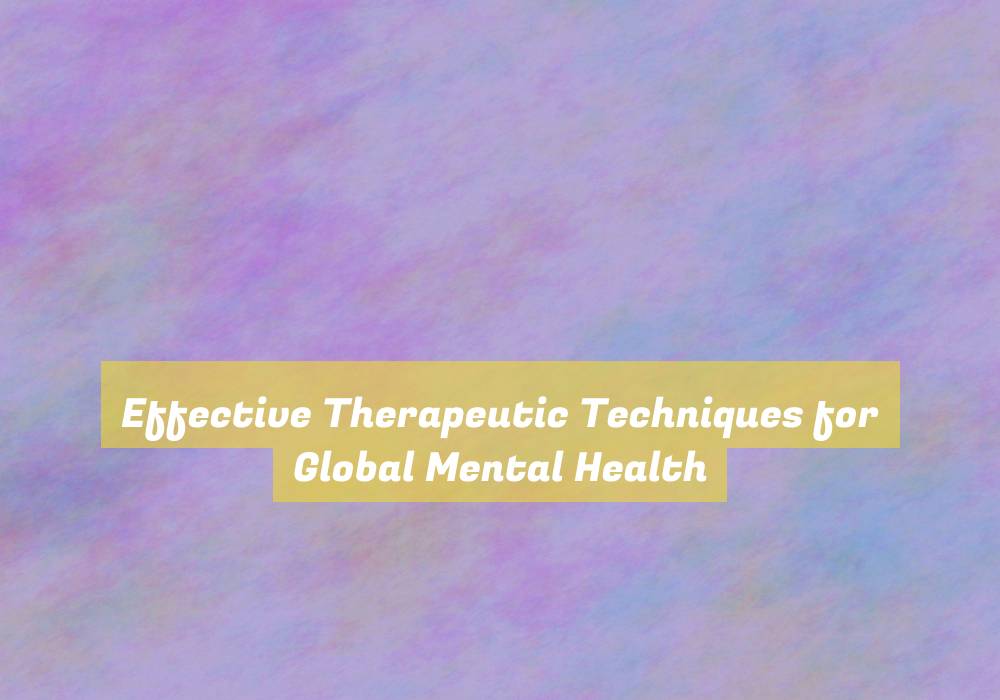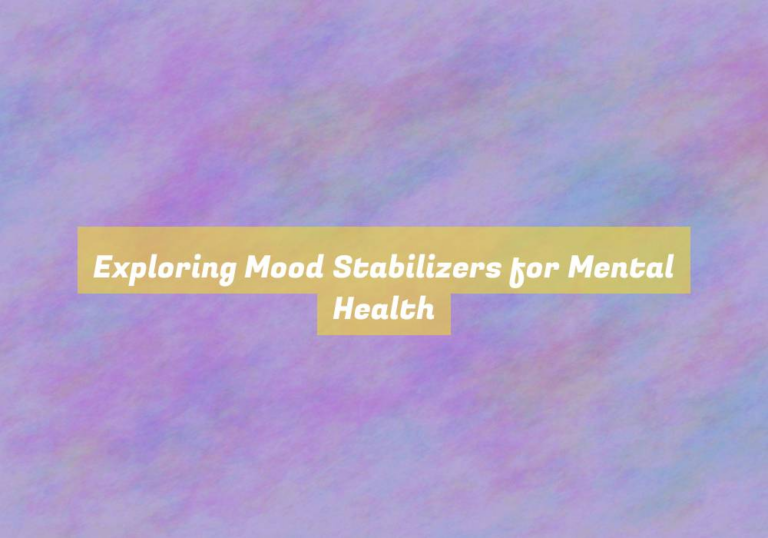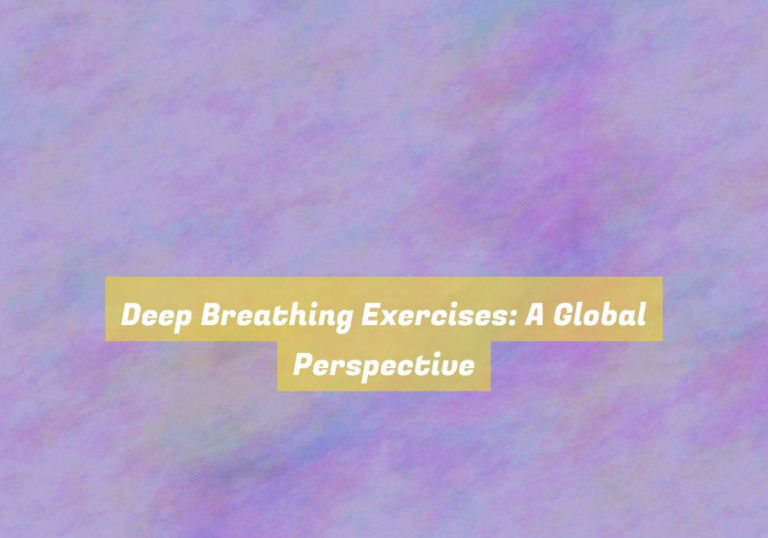Effective Therapeutic Techniques for Global Mental Health
YouG??ve probably heard the saying, G??The first step is always the hardest.G?? When it comes to addressing mental health on a global scale, finding effective therapeutic techniques is indeed a challenging endeavor.
However, there are proven methods that have shown promise in diverse cultural contexts, offering hope for people around the world. These techniques not only assist individuals in managing their mental health but also contribute to the overall well-being of communities.
Understanding these approaches could be the key to creating a more mentally healthy world for everyone.
Cognitive Behavioral Therapy (CBT)
Cognitive Behavioral Therapy (CBT) is a widely used and effective treatment for various mental health conditions. It focuses on the relationship between thoughts, feelings, and behaviors, helping you understand how they influence each other. In CBT, you actively work with a therapist to identify and challenge negative thought patterns and develop healthier coping strategies.
CBT is particularly beneficial for anxiety disorders. Through this therapy, you can learn to recognize and change anxious thoughts, gradually exposing yourself to feared situations, and mastering relaxation techniques. This empowers you to manage and reduce your anxiety effectively.
For those dealing with depression, CBT can be transformative. By addressing distorted thinking and engaging in positive behaviors, you can break the cycle of negativity and hopelessness. CBT equips you with the tools to reframe your thoughts, find alternative perspectives, and develop constructive habits that promote emotional well-being.
Moreover, CBT has been successful in treating various other mental health issues, including post-traumatic stress disorder (PTSD), eating disorders, and substance abuse. By providing practical skills and strategies, CBT empowers you to take an active role in your mental health and regain control over your life.
Mindfulness-Based Interventions
If youG??ve found CBT beneficial, consider exploring mindfulness-based interventions to further enhance your mental well-being and coping skills. Mindfulness-based interventions, such as Mindfulness-Based Stress Reduction (MBSR) and Mindfulness-Based Cognitive Therapy (MBCT), have gained recognition for their effectiveness in managing various mental health conditions. These interventions emphasize cultivating present-moment awareness and non-judgmental acceptance of thoughts and emotions.
Engaging in mindfulness practices can help you develop a greater sense of self-awareness, enabling you to recognize and effectively navigate your thoughts and feelings. By incorporating mindfulness into your daily routine, you can learn to observe your experiences without becoming overwhelmed by them, ultimately fostering a more balanced and resilient mindset.
Furthermore, mindfulness-based interventions have been shown to reduce symptoms of anxiety, depression, and stress. They can also improve overall psychological well-being and enhance coping mechanisms. Through regular practice, you can develop the skills to better regulate your emotions and respond to challenging situations with greater clarity and composure.
Incorporating mindfulness-based interventions into your mental health regimen can complement existing therapeutic approaches and provide you with valuable tools for cultivating inner peace and resilience.
Interpersonal Therapy (IPT)
How can Interpersonal Therapy (IPT) help you improve your relationships and mental well-being?
Interpersonal Therapy (IPT) is a structured and evidence-based approach that focuses on how your relationships and interactions with others impact your mental health. Through IPT, you can address issues such as communication problems, unresolved grief, role transitions, and interpersonal disputes. By working with a trained therapist, you can gain insight into how these factors may be contributing to your emotional distress and learn new ways to navigate and improve your relationships.
IPT is designed to be a short-term therapy, typically lasting 12-16 weeks, making it an efficient and focused approach to addressing your mental health concerns. The therapist will help you identify specific goals for therapy and work with you to achieve these objectives. By improving your interpersonal functioning and relationships, IPT aims to alleviate symptoms of depression, anxiety, and other mental health challenges.
Trauma-Informed Approaches
Understanding the impact of trauma on your relationships and mental well-being is crucial for implementing effective trauma-informed approaches. Trauma can have lasting effects on how you perceive and interact with the world around you. It can influence your ability to trust others, regulate your emotions, and maintain stable relationships. Trauma-informed approaches prioritize creating a safe and supportive environment where you feel empowered to explore and address the impact of trauma on your life.
In a trauma-informed approach, professionals recognize the widespread impact of trauma and understand the potential paths for recovery. They seek to actively resist re-traumatization and promote resilience. This approach involves integrating an understanding of trauma into policies, procedures, and practices, and involves creating a culture of safety, empowerment, and healing.
Key principles of trauma-informed approaches include safety, trustworthiness, choice, collaboration, and empowerment. By incorporating these principles into therapy, professionals can help you rebuild a sense of control and empowerment in your life. Trauma-informed approaches also emphasize the importance of understanding the prevalence and impact of trauma, as well as the potential paths for recovery and resilience.
Conclusion
In conclusion, effective therapeutic techniques for global mental health include:
- Cognitive Behavioral Therapy (CBT)
- Mindfulness-based interventions
- Interpersonal therapy (IPT)
- Trauma-informed approaches
These techniques focus on addressing the root causes of mental health issues and promoting overall well-being. By incorporating these approaches into mental health care practices worldwide, individuals can receive the support and treatment they need to improve their mental health and lead fulfilling lives.






